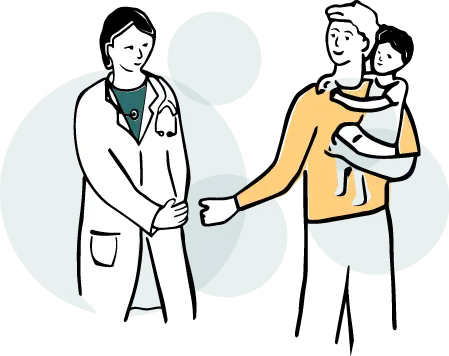

Awareness & Diagnosis of Hunter Syndrome
Diagnosis Doesn’t Have to be Rare

The heterogeneous nature of Hunter syndrome – with symptoms overlapping with common childhood complaints, and insidious onset – presents diagnostic challenges.1 There is often a delay of several years between the onset of signs and symptoms, and diagnosis.1 Due to the progressive nature of the disease, there is a need to diagnose early before irreversible damage occurs , and to manage symptoms earlier to improve patient outcomes.1
In addition, a diagnosis of Hunter syndrome can allow for appropriate precautions to be taken during surgical procedures due to some of the clinical features of the disease, such as short neck, immobile jaw, and pathological changes in the upper airways.2
Clinical suspicion of MPS II should prompt testing to confirm the diagnosis or detect another underlying cause.1.2
1. Burton BK, Giugliani R. Eur J Pediatr 2012;171(4):631-639. 2. Scarpa M et al. Orphanet J Rare Dis. 2011;6:72.
Hunter syndrome is a
progressive genetic disease
If you suspect Hunter syndrome, refer your patient to a metabolic geneticist for an accurate diagnosis.